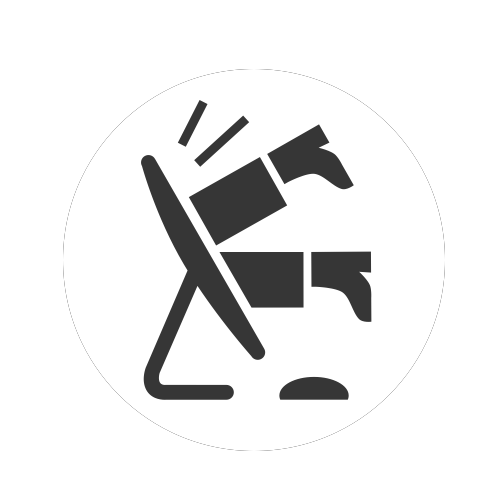
Photo by Matteo Grando on Unsplash
Observing the root of fear
Is it possible for the mind to empty itself totally of fear? Fear of any kind breeds illusion; it makes the mind dull, shallow. Where there is fear there is obviously no freedom, and without freedom there is no love at all. And most of us have some form of fear; fear of darkness, fear of public opinion, fear of snakes, fear of physical pain, fear of old age, fear of death. We have literally dozens of fears. And is it possible to be completely free of fear?
We can see what fear does to each one of us. It makes one tell lies; it corrupts one in various ways; it makes the mind empty, shallow. There are dark corners in the mind which can never be investigated and exposed as long as one is afraid. Physical self-protection, the instinctive urge to keep away from the venomous snake, to draw back from the precipice, to avoid falling under the tramcar, and so on, is sane, normal, healthy. But I am asking about the psychological self-protectiveness which makes one afraid of disease, of death, of an enemy. When we seek fulfillment in any form, whether through painting, through music, through relationship, or what you will, there is always fear. So, what is important is to be aware of this whole process of oneself, to observe, to learn about it, and not ask how to get rid of fear. When you merely want to get rid of fear, you will find ways and means of escaping from it, and so there can never be freedom from fear.
Can the mind observe fear? Your fear: fear of death, fear of life, fear of loneliness, fear of darkness, fear of being nobody, fear of not becoming a great success, fear of not being a leader, a writer, fear of many different things. First of all, is one aware of it? Or one leads such a superficial life, everlastingly talking about something else, and so one is never aware of oneself, of one’s own fears. Then if one does become aware of those fears, at what level do you become aware? Is it an intellectual awareness of them or are you actually aware of your fears, and aware at the deeper levels of your mind of fear, of the deep hidden recesses? And if they are hidden, how are they to be exposed? Must you go to an analyst? And the analyst is yourself; he needs to be analysed too!
So how do you uncover the whole structure, the intricacies of fear? This is a tremendous problem, not just to be listened to for two or three minutes and then forgotten, to find out for oneself whether it is possible to expose all fears, or whether there is only one central fear that has many branches. When one sees the central fear the branches begin to wither away. Is there one central fear like the trunk of a tree, though it has many branches, and if you could understand that single root of fear you have understood the whole network of fear? How do you approach this, from the periphery or from the centre? If the mind can understand the root of fear then the branches, the various aspects of fear have no meaning, they wither away. So what is the root of fear? Can you look at your fear? Please look at it now, invite it. Naturally you are not afraid now, sitting here, but you know what your fears are: loneliness, not being loved, not being beautiful, frightened of losing your job, this or that. By looking at one fear, at your particular fear, you can then see the root of that fear; not only the root of that fear, but the root of all fear. Through one fear, by observing it in the sense of the observer being the observed, then you will see for yourself that through one fear you discover the very root of all fear.
Suppose one is afraid of loneliness. Have you looked at loneliness or is that an idea of which you are frightened? Not the fact of loneliness but the idea of loneliness. Which is it, the idea or the actuality that frightens you? I have an idea of loneliness, the idea being the rationalization of thought which says, ‘I don’t know what it is but I am frightened of it.’ Or I know what loneliness is, which is not an idea but an actuality. I know it when I am in a crowd and suddenly feel that I am not related to anything, that I am absolutely disassociated, lost, cannot rely on anybody. All my moorings have been cut and I feel tremendously lonely, frightened. That is an actuality. But the idea about it is not an actuality, and most of us have an idea about fear.
So if it is not an idea but an actuality, what is loneliness? Aren’t we breeding it all the time by our self-centred activity, by this tremendous concern with ourselves, our looks, our attitudes, our opinions, our judgements, our position, our status, our importance? All that is a form of isolation. Throughout the day, for years we have done this, and suddenly we find we are utterly isolated. Our beliefs, God and everything goes away. There is this sense of tremendous isolation which cannot be penetrated and that naturally brings great fear. I observe that in my daily life, my activities, thoughts, desires, pleasures, experiences are more and more isolating. And the ultimate sense of it is death. I observe it. I observe it in my daily movements and activities. And in the observation of this loneliness, the observer is part of that loneliness, is essentially that loneliness. So the observer is the observed and therefore he cannot possibly escape from it, he cannot cover it up, try to fill it with good activity or whatever it is, going off to church or meditating and all the rest of it. So the observer is the observed and therefore what happens then? You have eliminated conflict altogether, haven’t you? You have tried to escape from it, to cover it up, to rationalize it. Now you are faced with it; you are that. When you are confronted with it completely and there is no escape and you are that, then there is no problem, is there? There is no problem because then there is no sense of loneliness at all. I wonder if you see this.
So can you observe your fear? Through one fear trace the very root of all fear? That is, through this sense of loneliness haven’t you traced the root of fear? I am lonely. I know what that means not as an idea but as an actuality. There is this extraordinary sense of loneliness, isolation. Isolation is a form of resistance, a form of exclusion and I am fully aware of it. I am also aware that the observer is the observed. And there is fear there, deep-rooted fear. Through one factor of fear, loneliness, I have been able to find out, look at the central fact of fear, which is the existence of the observer. If the observer is not – the observer being the past, his opinions, judgements, evaluations, rationalizations, interpretations, all the tradition – if that is not, where is fear? If the “me” is not, where is the fear? But we are educated, religiously, to assert and cultivate the “me” as the observer. So I am a Catholic, I am a Protestant, I am British, I am this, I am that. And by looking at one fear the mind has been able to look and trace the central fact of fear, which is the existence of the observer, the “me”.
Can I live in this world without that “me”? When everything around me is the assertion of the “me”: the culture, the works of art, business, politics, religion, everything around me asserts, ‘be you’ – cultivate the ‘me’. In this culture or civilisation can one live without the ‘me’? The monks say you can’t, so escape from the world, go into a monastery, change your name, devote your life to this and that. But the “me” is still there because that “me” has identified itself with the image it has projected, as Christ, this, that and the other. The “me” is still there, in a different form.
So can one live – please, this is a tremendously important and a very, very serious question, it is not just something to play around with – can one live without that “me” in this monstrous world? That means can one live sanely in a world of insanity? The world is insane, with all the make-believe of religions. You know everything that is happening, I don’t have to tell you. Can you live in an insane world and yourself be totally sane? YES!!!!!.

Leave a Reply